Marine batteries under the control of Corvus Energy
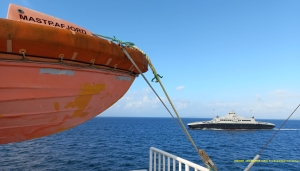
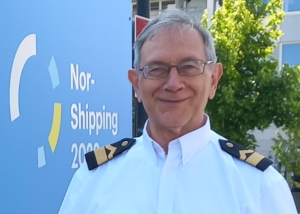 By Marek Grzybowski
By Marek Grzybowski
DNV has certified the SOH (State of Health Test) testing method developed by Corvus Energy for electric batteries installed on ships. It is the first supplier of marine ESS (energy storage system) that allows its customers to monitor the condition of batteries during ship operation.
New technologies are being introduced on a large scale in maritime transport. This involves new threats that we are often unaware of. Battery systems require constant and professional supervision. Energy storage on a ship operates in particularly difficult conditions.
Condition testing (SOH) of marine battery systems is mandatory. Unfortunately, they often require the ship to be shut down for at least one day. The operator must have reliable information about the condition, performance and safety related to the use of batteries during the period of ship operation.
Tests developed by Corvus Energy help users determine the current capacity, performance and life of the battery. The developed tests increased the accuracy and efficiency of battery condition monitoring. The user receives data on the scope of work that needs to be performed to maintain marine battery systems. The important thing is that the test can be performed almost without disruption to normal operation. This solution significantly reduces costs and shortens the time needed to take the ship out of service, the manufacturer argues.
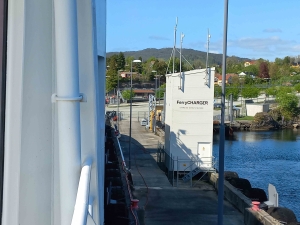
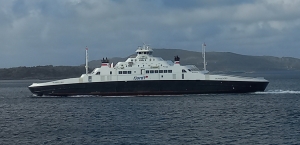
Digital twin in a battery
“We realized very early on that we could significantly reduce costs and unwanted downtime for ship owners if we could conduct an annual SOH test without taking the ship out of service,” explains Lars Ole Valøen, vice president and chief technology officer at Corvus Energy, explaining the introduction of the tests.
It took a long time to reach an effective solution. Valøen emphasizes that “due to the high complexity of battery utilization processes, it took almost 5 years to collect sufficient data on battery consumption and develop robust data-driven SOH algorithms.”
The research work was carried out by an experienced team of battery experts in cooperation with world-class research institutions and DNV. Large amounts of data from installations implemented by Corvus were used to develop the algorithms.
Data obtained during laboratory tests were also used. An advanced digital twin approach was used to simplify test procedure requirements without compromising test accuracy.
– This method will also result in more frequent SOH testing of the actual choice in the future, enabling improved safety and more predictable operation, especially at the end of the life of the battery installation, emphasizes Lars Ole Valøen.

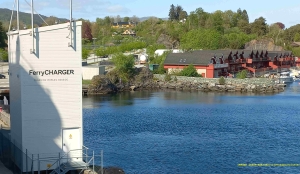
Fjord 1 with batteries
The need for development and the usefulness of SOH is emphasized by Fjord 1. It is a leading Norwegian ferry operator with 25 ferries operating with Corvus battery systems. “Recognizing the costly and disruptive nature of traditional battery health (SOH) testing, which meant taking the vessel out of service for an entire day, the operator sought a more efficient solution.”
The idea was to perform the required battery health checks without compromising operational continuity. “The process was similar to taking an oil sample from a diesel engine, which required it to be turned off until the sample analysis was completed and the report was received,” explains the operator graphically.
– Fjord 1 is pleased to confirm Corvus’ introduction of a new, more efficient battery health testing methodology (SOH). This innovative approach, based on digital twin technology, is a step forward towards operational efficiency, says Sondre Austreim, Electro Operations Manager at Fjord 1.
Austreim emphasizes: “We are grateful for the opportunity to contribute and are satisfied with the results. Fjord 1 looks forward to the positive impact this new methodology will bring to our fleet.”
Corvus says it intends to further develop its data-driven approach in the future to provide its customers with updated SOH verifications at any time, on demand, based solely on real data from their normal operations.”
Corvus Energy has deployed more than half of its ESSs on board ships worldwide, generating a total of more than 300 megawatt-hours (MWh). The company is also becoming more active in the North American market, where it is increasingly implementing energy storage systems (ESS) for use in conjunction with combustion engines. In many cases, battery banks are used as the only energy resource on electrically powered ships.
In North America, Corvus launched energy storage facilities with a capacity of 24 MWh. They are used on United States Coast Guard units and ships flying the Canadian flag.
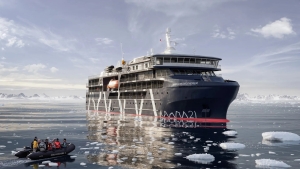
Magellan Discoverer with the battery energy storage system
In March this year the company announced that it will provide a battery energy storage system on the Magellan Discoverer. It will be the first hybrid ship to be built in South America.
It will be a luxury cruise ship for polar expeditions. It will be built in the Chilean shipyard Astilleros y Servicios Navales S.A. ASENAV for the Antarctica 21 cruise operator.
Magellan Discoverer will be equipped with cutting-edge technologies to ensure sustainable operation. The ship will be equipped with solutions such as energy recovery from elevators and heat exchangers. The latter will accumulate heated air before releasing it outside. Thanks to its state-of-the-art hybrid-electric powertrain, Magellan Discoverer will meet stringent Tier III emission standards.
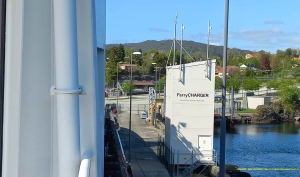
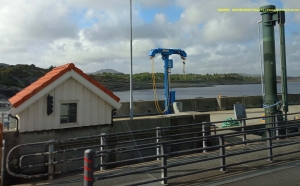
Corvus Energy will supply the Orca energy storage system for use in zero-emission operating mode. The battery system will be part of a complete power plant made by ABB. The 93-meter ship will enable 96 passengers to travel to Antarctic regions. 67 crew members will ensure the voyage of this boutique ship.
Corvus Orca is the battery system of choice due to its scalability, fast charge/discharge capabilities, and ease of installation. The battery uses Li-NMC cells and technology that optimizes safety and performance.
It was Orca that broke the cost-benefit boundary, raised the bar on marine battery safety standards and began the rapid implementation of innovative electrical systems in the Nordic countries.
Corvus Orca is currently deployed on over 200 ships worldwide. The system has proven successful across many ship types and operational profiles. The system has been used on marine auxiliary units and shuttle tankers, car and passenger ferries, boats, tugboats and vessels serving fish farms.
